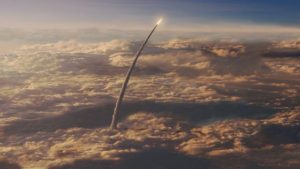NASA has just launched another rocket with a payload bound for Mars. It’ll get there in due course, land and then stick a probe into the Martian dirt to hunt for signs of life.
All of these unmanned missions make me long for a return to the manned events, those with human beings launched into space. Maybe one day we’ll send folks into deep space to explore the way only humans can do.
I hope to live long enough to watch it happen. I plan to clench my fists tightly during the entire mission, just as I did when I would await the Mercury, Gemini and Apollo launches with my mom during the 1960s.
That brings me to another story I want to retell here.
In the 1980s, NASA had this bold idea to send a journalist into space. The space agency put the word out to all working American journalists — print and broadcast — and asked them to apply.
Being the space junkie I was at the time — and remain, to a lesser degree in my older age — I applied. I filled out the application and submitted what I thought was a brilliantly worded essay explaining why NASA should pick little ol’ me to chronicle space flight in real time to the world sitting 200 miles below the orbiting craft.
I was living and working in Beaumont, Texas, at the time. NASA headquarters is situated just west of Beaumont in Houston. I figured, hey, if they pick me NASA ‘s travel costs would be next to zero!
I waited. And waited some more. I began grousing about not hearing anything from NASA about the status of my request to fly into space. Then a colleague of mine at the Beaumont Enterprise sought to “reassure” me, to “comfort” me against the anxiety I was feeling. I mentioned to my colleague Rosie that NASA was probably going to go with some big hitter, some network news star everyone knew.
“Oh, no they won’t,” Rosie answered. “They’re going to pick a nobody … just like you.”
I took that as a compliment of sorts.
The journalist in space launch never occurred. NASA then sought to launch a teacher into space. A teacher boarded the shuttle Challenger on Jan. 28, 1986 and then died along with her crewmates 73 seconds after liftoff when the ship exploded.
I plan to live forever with the proverbial “what if?” question that will lurk in my noggin. It comes me to every time I hear of a space flight and as I await the day we return human beings to space.
